As a matter of fact, email marketing is one of the core elements of digital marketing to add value to one’s business. However, some challenges in this strategy are inevitable, whenever any company expands globally. And spam laws are one of them.
Therefore, as an email marketer, you ought to be abreast with these email spam laws. Putting it in other words, your aim is to propel the relevant content to your audience. But, what is even more important is that the content should be presentable and with a clear message to help you earn the trust of your clients.
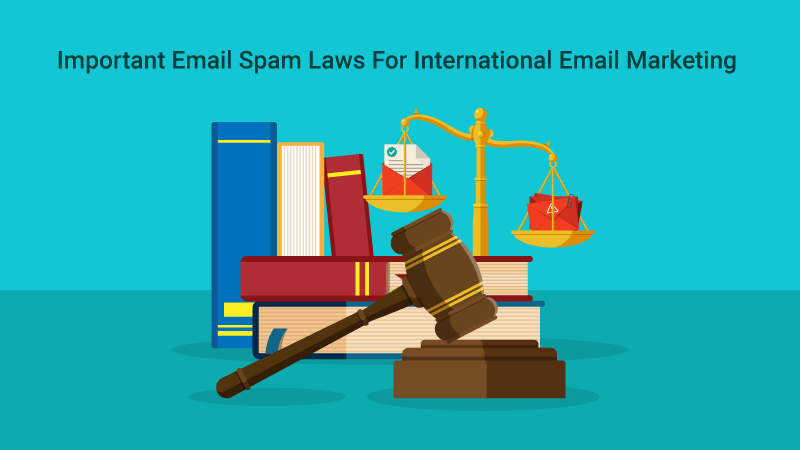
Probing further, many countries have some regulations pertaining to spam rules for email marketing, failing to which, you may be subjected to hefty fines or criminal penalties in some cases.
So, we are here to make you learn about some email spam laws, to be considered whenever you devise an international email marketing strategy.
But, first, let’s get down to the brass tacks.
Why should one consider Spam checks?
According to Statista, Spam alone accounts for 56% of the total email traffic. Moreover, spam emails lead to further serious issues like excessive email traffic, irrecoverable email costs, server overburdens and many more. However, this is just the silver of the full scope. Since spam emails are perceived as an effective tool for deceitful activities, they are considered to be dangerous. While the most common fraudulent activities being the delivery of malware, and theft of confidential data. Subsequently, there arises the need for implementing regulations when one undertakes email marketing.
Foundational Concepts in email spam laws making
The foremost matter of concern is when you devise a cold email marketing campaign is:
Are they welcoming to your emails?
If yes, then it’s a go-ahead for you.
If not, then you might be invading their privacy and be subjected to the criminal offense in some countries.
Opt-out vs. Opt-in Approach
There are two most commonly employed approaches to obtain consent from the prospective recipients of your email marketing.

- The opt-out approach expects the grant of the consent until it is repelled. For example, contravening from the mailing list.
- Whereas, the opt-in approach relates to consent to a specific action. For example, registering for a mailing list and endorsing to receive newsletters. Further, this can happen in two ways: implicit consent and explicit consent.
Implicit Consent
Implicit consent or indirect consent or inferred consent is usually evolved from your present circumstances and actions.
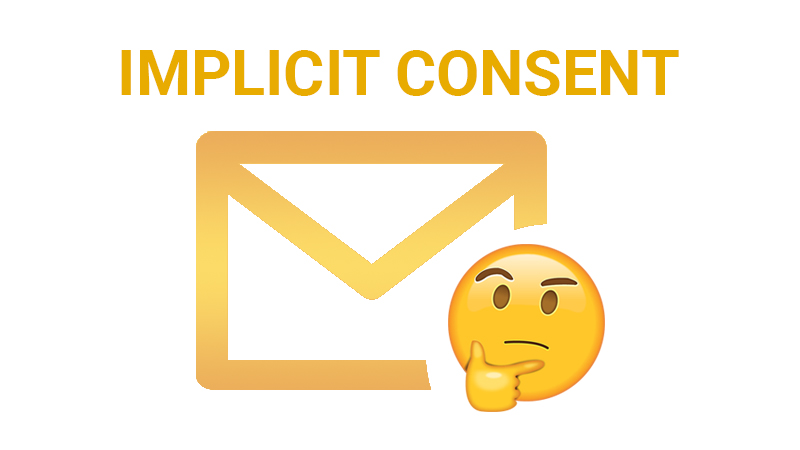
For better understanding, assume that a recipient just bought something from you. Therefore, now you can presume that the client is concerned with similar services or products for the future.
Explicit Consent
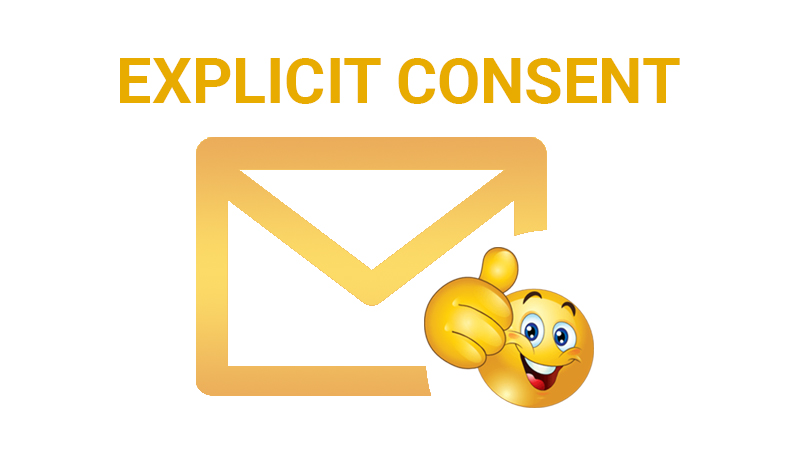
Explicit consent or direct consent or express consent confers the business or individual to access the personal data. Consent can be attained in either oral or written form. However, maintaining a record of consents is a requirement in both forms. Putting it differently, while you are processing email marketing, you provide clients with a website registration form, where you put across an option of subscribing the newsletter. Therefore, it leads to two versions. Firstly, if the only registration form is to be filled out, then it is called a simple opt-in process. Secondly, when a link is sent to the attained email address to confirm the registration, it is called a double opt-in process.
Probing further, the confinements for both the versions of consents are laid down in the email spam laws by different countries. So, let’s run down through the list of various countries’ spam rules for email marketing.
1. USA – CAN-SPAM Act (2003)
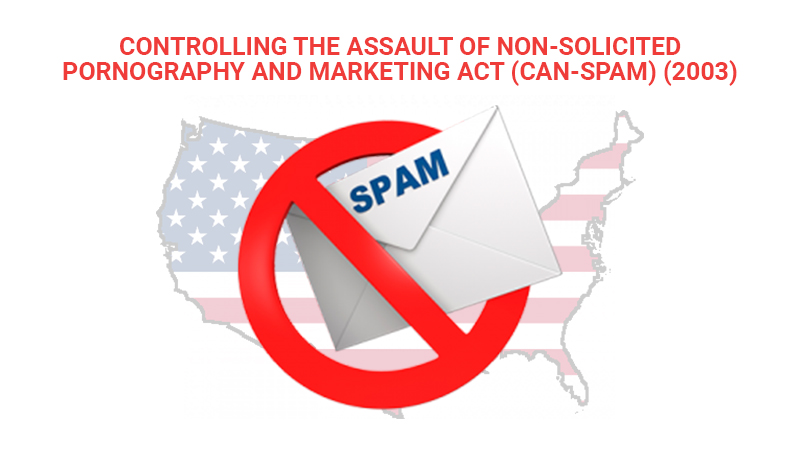
Controlling the Assault of Non-Solicited Pornography and Marketing Act (CAN-SPAM) was enacted by the Federal in 2002, which prohibits transmitting Commercial Electronic Messages (CEMs). Unless they fulfill the following requisites:
- In relation to Content:
- Clarify the commercial nature of your email to the recipient(but there should be a prior consent)
- Email must contain a precise header.
- The subject line should be relevant to the body of the message.
- If adult content, then a label should indicate that.
- A valid physical address of the sender should be stated.
- Cancellation option, subjected to maximum 10 days processing period should be provided.
However, there is one difference between CAN-SPAM act and other similar anti-spam laws of Canada, Europe, and Australia, i.e. opt-out approach.
This means, one is free to contact businesses or individuals without any prior consent. As far as the sender comply by the aforementioned requisites and do not practice any illegal ways to gather email addresses. One of the typical examples of illegal means is employing an automated email generator.
Eventually, be cautious while hiring someone for Email marketing management. Since both the sender and the brand producer are liable for it. On the issue of breaching the email spam laws, penalties can draw up to USD 16000/violation/individual email.
2. Canada – Anti-Spam Legislation (2014)
As compared to the anti-spam laws of different countries, Canada is considered to have a well-balanced and a rather stringent approach to monitoring unprompted commercial emails. Canada – Anti-Spam Legislation (2014)(CASL) bars both the individuals and businesses from transmitting CEMs to its citizens without prior consent.
The law also bars:
- Alteration in the broadcasted data of electronic messages, without explicit consent.
- Installation of computer programs on a computer system or network of information by spyware, malware or viruses concealed in Spam emails.
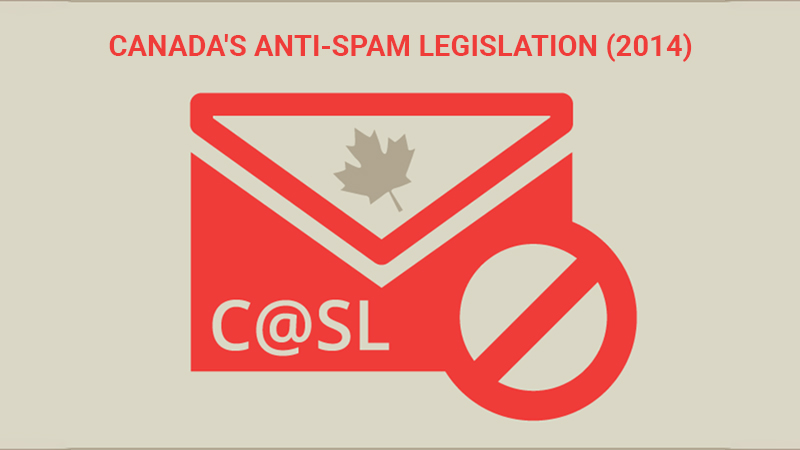
However, there are 3 pre-requisites to be obeyed by all the emails to abide by the laws.
- Opt-in Approach whether implicit or explicit consent.
- A vivid display of the sender’s designation, identity, and the contact information in the message sent.
- Cancellation option, subjected to maximum 10 days processing period should be provided.
Moreover, the CASL is not only applicable to the individuals and businesses residing and operating within the Canadian territory. But it also applies to anyone contacting the people in Canada who are subjected to this legislation. Consequently, are free to report complaints to the corresponding nations with similar spam laws.
Eventually, on the issue of breaching the spam laws, penalties can draw up to a considerable amount of CAD 10 million for businesses and CAD 1 million for individuals.
3. Australia – Spam Act of 2003
Australia-Spam Act of 2003 bars the transmission of commercial electronic messages. This legislation shields all the messages generating from and aiming for Australian addresses.

Therefore, to reach people and businesses legitimately, one is required to follow:
- Opt-in Approach whether implicit or explicit consent.
- A vivid display of the sender’s designation, identity, and the contact information in the message sent.
- Cancellation option, subjected to maximum 5 days processing period should be provided.
However, purchasing of email address list is allowed for generating leads. Although, one will be required to check the validity of those address lists. Moreover, it is the responsibility of the individual seeking for the list, to ensure the lawful attainment of the consent. For instance, lists utilizing software like address-harvesting is illegal. While, certain organizations are exempted from regulating consent, such as political parties, government bodies, and registered charities. Nonetheless, third party contractors operating on one’s behalf is equally responsible to follow the legislation. Eventually, on the issue of breaching the spam laws, penalties can draw up to AUD 2.1 million.
4. New Zealand – Unsolicited Electronic Messages Act 2007
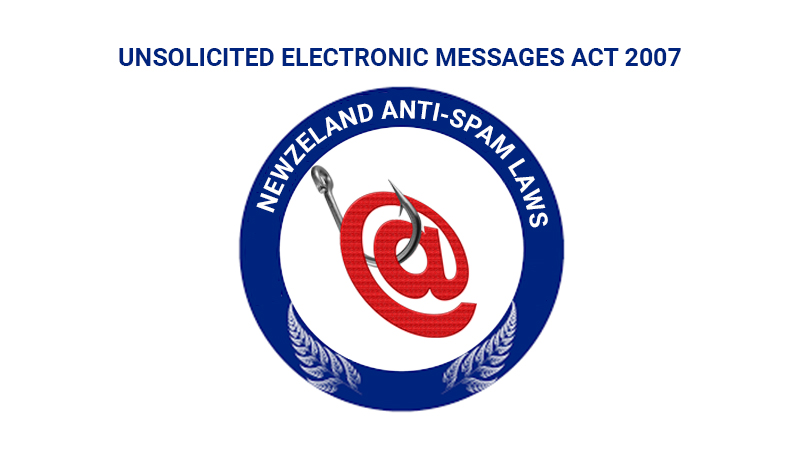
The email spam laws in New Zealand are outlined by the Unsolicited Electronic Messages Act 2007. Quite similar to the Australian anti-spam laws, this legislature, forbids the spam messages sent from and to New Zealand.
The statute orients:
- Opt-in Approach whether implicit or explicit consent.
- Purchasing of email address list is possible, given that maintenance of consent records is a must.
- A vivid display of the sender’s designation, identity, and the contact information in the message sent.
- Cancellation option, subjected to maximum 5 days processing period should be provided.
Fines pertaining to businesses can draw up to NZD 500000. Whereas, in certain cases, companies are accountable for the payment of compensation for any losses suffered. Or they have to pay the damages equal to the value of the profit earned by spamming.
P.S. It is not necessary to receive the messages in bulk, even a single message can be taken into account as unsolicited.
5. India
There are no such email spam laws in India. However, Section 79 and 43a of the Information Technology Act 2000, implies that any mediator dealing with personal data is accountable for the compensation. It provided that it does not protect the data. Additionally, under Section 67 punishment can be levied if filthy content is transmitted or published through electronic means.
Penalties can go up to INR 500 000. Moreover, in case of sequential conviction, fine of up to INR 1000000 and up to 5 years of imprisonment is impinged.
P.S. the law is defined extensively and is merely implemented in the cases of email marketing.
Considered Key Aspects
Irrefutably, Email Marketing is one of the effective ways of digital marketing used to build a brand. Prior to the engagement in international email marketing, ensure yourself to be well informed of all the email spam laws of your respective countries of operation.
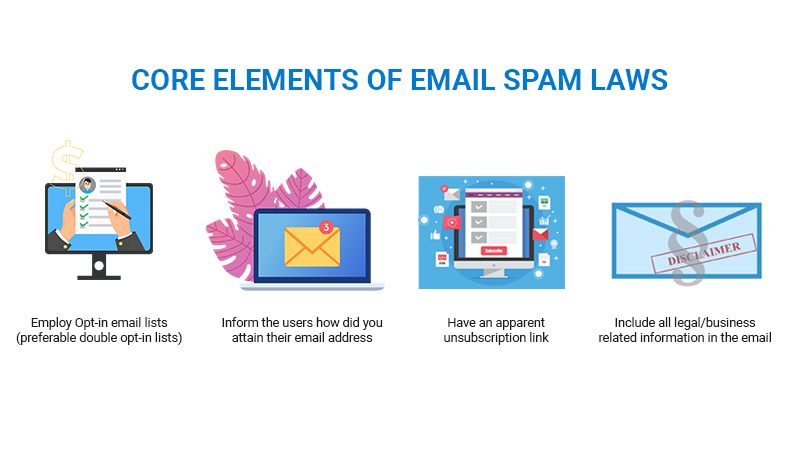
Afterthought, you should always remember these are not the only aspects to be considered while taking up email marketing. There is a long list of the Email Spam Laws.




